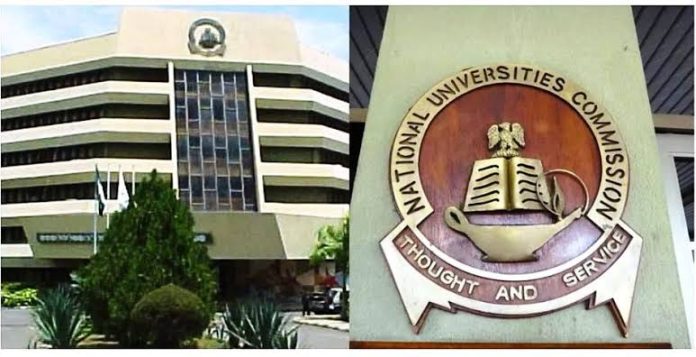As the Africa Centres of Excellence, ACE, Impact Project enters its final month of funding, the Executive Secretary of the National Universities Commission, NUC, Prof Abdullahi Ribadu, has urged participating institutions to prioritise sustainability beyond donor support.
Speaking at a pre-closure retreat for ACE beneficiary universities in Abuja on Wednesday, Ribadu commended the initiative for transforming Nigeria’s academic landscape and enhancing the global competitiveness of its universities.
“The ACE project has empowered our universities and contributed significantly to regional integration and internationalisation. We must now scale up the gains of the past decade and ensure these Centres remain engines of growth and regional leadership,” he said.
The ACE Impact initiative, aimed at advancing postgraduate education and research in key development sectors, started in 2014 with funding from the World Bank and is scheduled to conclude its current funding phase by June 30, 2025.
Ribadu emphasised the need for ACE centres to transition from temporary project status into permanent institutional assets.
He encouraged vice-chancellors and centre leaders to develop robust sustainability strategies, diversify funding sources, and establish governance structures capable of attracting long-term public and private investment.
Also speaking, the ACE National Project Coordinator, Dr Joshua Attah, said the 17 Centres of Excellence across 14 Nigerian universities have recorded significant accomplishments in research, postgraduate training, and regional academic integration.
“These projects are not going away. What’s ending is the funding, but the infrastructure, the capacity, and the benefits to students and researchers remain firmly in place,” Attah said.
According to him, Nigeria’s ACE Centres have collectively earned $89.1 million through performance-based Disbursement Linked Indicators, DLIs, and attracted additional funding totalling over N3.2 billion, $24.9 million, €1.77 million, and £589,000 from various local and international sources.
“These resources have supported infrastructure upgrades, advanced research equipment, scholarships, especially for women, and accreditations,” he added.
Attah revealed that the 17 Nigerian centres have enrolled 33,347 students, including 924 regional students, 294 female and 630 male, and 6,129 national students, 2,681 female and 3,448 male.
A total of 6,945 students are currently pursuing graduate degrees, 1,862 at the PhD level and 5,083 for MSc.
He stressed the need for institutions to monetise the gains of the projects to ensure sustainability beyond the World Bank and government support.
On his part, the Director of the African Centre of Excellence for Genomic Infectious Diseases, ACEGID, at Redeemer’s University, Prof Christian Happi, underscored the programme’s regional impact, saying that its success lies in both scientific achievement and cross-border academic collaboration.
“We’ve attracted top international grants and students. That’s the hallmark of a sustainable academic model,” he said.
Also speaking, the Vice-Chancellor of Lagos State University, LASU, Prof. Ibiyemi Bilola Olatunji-Bello, celebrated the success of LASU’s Centre of Excellence in STEM Education.
“Our centre has helped us gain international accreditation and elevated LASU’s global academic standing. We’ve trained graduates from across Africa—including Gambia, Sierra Leone, Niger, and Gabon,” she noted.
The ACE impact project, funded by the World Bank and African regional governments has 53 centres across 11 countries with Nigeria hosting the highest number- 17, in 14 universities.



